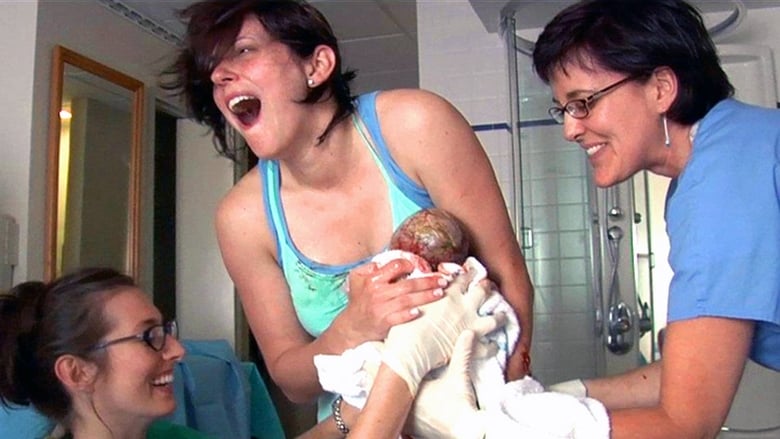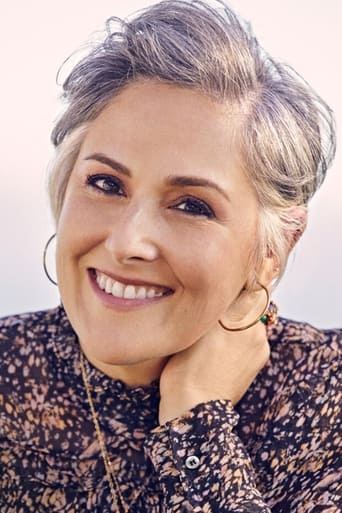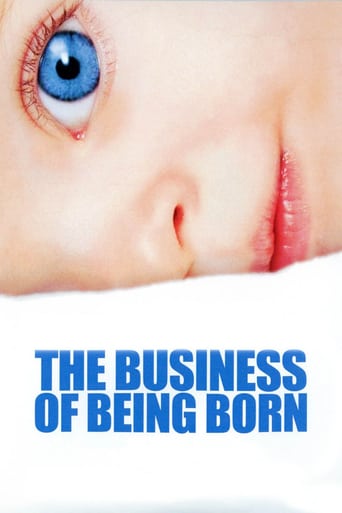
The Business of Being Born
January. 09,2008Director Abby Epstein's controversial documentary takes a hard look at America's maternity care system, juxtaposing hospital deliveries against the growing popularity of at-home, natural childbirths that some expectant parents are opting for. Former talk show host Ricki Lake was inspired to produce this compelling exposé after a dissatisfying birthing experience with her first child left her with many unanswered questions.
Similar titles

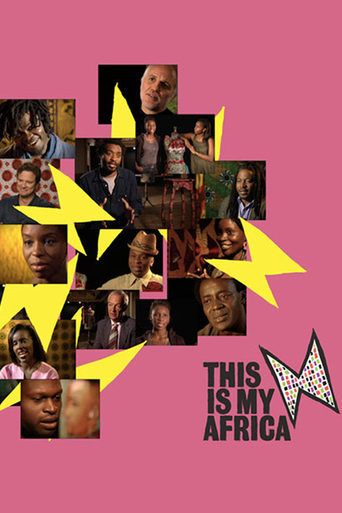
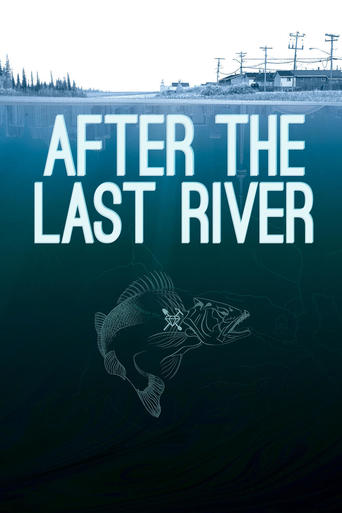
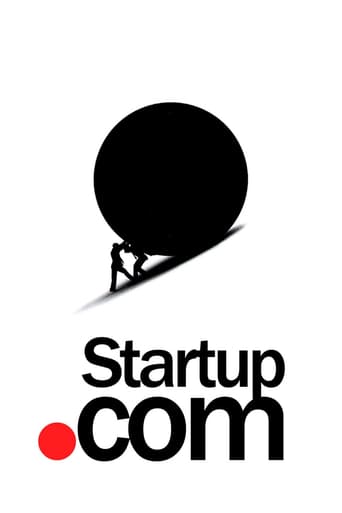
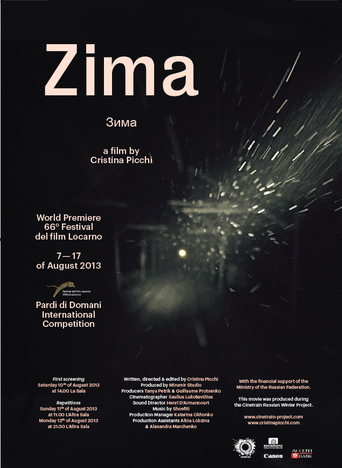
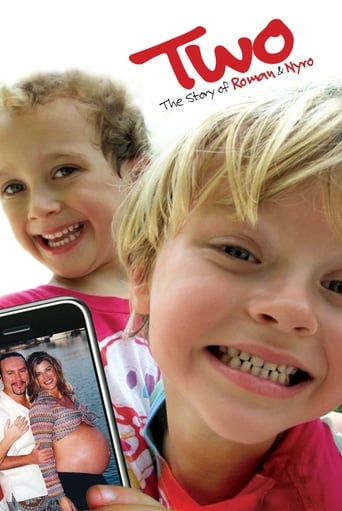
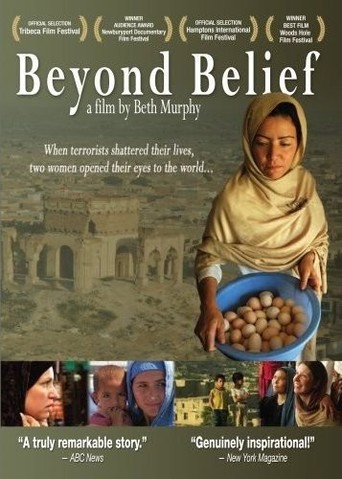
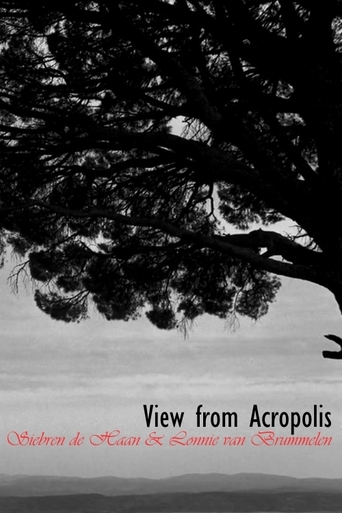
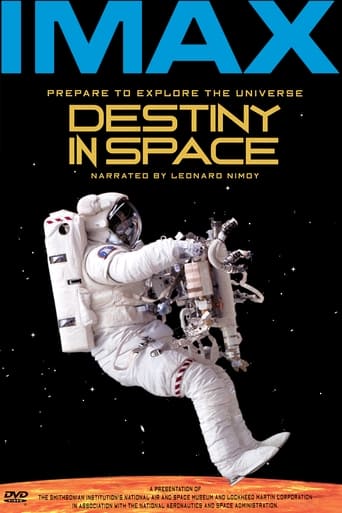
Reviews
Good , But It Is Overrated By Some
Excellent adaptation.
This is a small, humorous movie in some ways, but it has a huge heart. What a nice experience.
The story-telling is good with flashbacks.The film is both funny and heartbreaking. You smile in a scene and get a soulcrushing revelation in the next.
The Business of Being Born is about birth procedure in the United States today, specifically regarding home births in contrast to hospital births. According to the documentary, these days 99% of births in the United States happen in hospitals. Most women don't even know about their options to have home births or even what a midwife is. Interviews with several birth specialists concluded that this is in fact a travesty, that the rushed, drug-infused deliveries that doctors are pushing on women these days is actually contributing to the United States having one of the highest infant and women mortality rates in any developed country in the world. Host, Ricki Lake and just about every person interviewed in the documentary really pushed women to consider natural home births with midwives. Obviously, this documentary was very biased towards one point of view. Regardless, it really got me thinking about birth and about the questions I should ask if and when I have a baby.The documentary showed four or five home births on camera. Sure, they were gross but what was nice about them was that they didn't look so frightening. Any time you see a birth scene in a movie, the woman is typically screaming her head off and many times complications arise and interventions are made. The home births made having a baby look like this super happy, empowering thing (and painful of course but I guess that goes without saying). The women were able to have their babies in their own homes on their own terms without having anyone make suggestions that they take drugs or induce.Of course there are times when those things are needed. I'm not trying to downplay the value of hospitals when it comes to having a baby. Hospitals can provide services that midwives cannot. I just think that it's good to at least think about. Assuming your pregnancy is low-risk, why not try it? I don't know about anyone else, but personally I don't really feel comfortable in hospitals.I'm a long way off from having to make these kinds of decisions. Who knows if and when I'll even have children. I'm glad I saw The Business of Being Born though. It gave me a lot to think about and really reminded me of the importance of doing research and developing your own birthing plan.
The Business of Being Born (2008) Ricki Lake and Abby Epstein (Until the Violence Stops) Rating: 7/10 "The United States has the second worst newborn death rate in the developed world" (The Business of Being Born). As a first time mother, this statistic was very frightening. I wanted to understand the reasoning and methods behind this unnerving statistic. This documentary was recommended by a peer and I was not sure what to expect of it, I thought that it would take a look at a few deliveries. But what I received from this documentary was greater than watching a normal birth. I received perspectives, answers and confirmation. Honestly, this documentary sheds light on one perspective and that is natural birthing, it does not look into other methods except to confirm the natural method. The film makers tried to compare the births that take place in a hospital setting and the ones that take place at home. The main focus was the home birth, but I honestly felt like this narrowed perspective allowed me to take the information and process it on my own. As viewers we are shown the processes of a natural birth, and then shown the processes of women who wanted natural births but for one reason or another could not. The main difference that I noted was female choice, which I believe to be the overall message of this documentary. In the hospital female choice was mostly dictated by doctor decision without understanding the rationale behind those decisions. While at home, the decisions appeared to be dictated by the mother; in fact the expectant mothers seemed to be laboring basically on their own without any mediation. Obviously in society with our new focus of going natural, there is going to be aims to support it for every aspect of life. This film supports the natural method of birthing whether at home or in a birthing center. If one is not curious or into the natural method, for a first time mother as myself it allows you to see several birth perspectives. This film can be informative from either perspective if you do not know what to expect for your first birth. It asks mothers to do something that our society usually does not do and that is to question a doctors reasoning behind some decisions. I agree with the film makers when they say that when a doctor say's I think we should do this, we automatically agree because we believe it is in our best interest. The point from this is, sometimes it may be unnecessary. Birth is a natural process in the fact that your body knows how to create, carry and eventually deliver a baby and this documentary delves into that perspective. Baby ratio is 64 born to every 1,000 women, so this is a topic that is very common and profound in our society and very relatable since everyone knows or knew someone who was pregnant at one point. The film makers use personal interviews of themselves, their patients, doctors, and experts to give us a view of the "problem" with deliveries in America. There is a span from child birthing from the 1900's to present time. One of the most appealing points in the film was the use of medicines during the birthing process and their later effects on children. With hospital staff we do see two different perspectives on home versus hospital birth, natural versus non-natural methods of birthing. Abby Epstein and Ricki Lake were both present during the entire film. Lake had an overwhelming presence on the film over Epstein. Majority of the camera shots were close-ups on the speakers at the time, or of the birthing process. Due to the one on one interviews the camera was always eye level on the speakers. The camera would also pan out, to give us a view of the room, birthing process or other speakers. The focus was deep; everything appeared clear and in focus. Some of the hospital scenes appeared to have a soft focus and that was to show the blur and rush of birthing and the birthing process in the hospital setting versus at home or at a birthing center. Editing techniques were mainly cross-cut, to quickly take us to the next scene. The film makers included archival photos and video of birthing over the course of history. Diegetic sound was used throughout the filming of this documentary. My perspective was very biased since I would like to birth naturally but in a hospital. I felt that this documentary helped me gain perspective on my voice and verbalizing my wants during delivery. I think even after watching this documentary I still want to birth in the hospital, I just feel I am more aware of my options. Now from the perspective of mothers that do not prefer natural birthing, I am not sure of the effectiveness of this documentary as a persuasive technique due to my bias. I would be interested in hearing the pros and cons from this perspective. The end of the film I found gave me the perspective due to the film maker Epstein going against the overall objective of the film and then her rationalization of her decision. This changed the perspective from the overlying message of natural home birth is best, to whatever birthing option the mom thinks is best for her!
I am a mother of two, and I found this movie to be extremely offensive. How to give birth is a deeply personal choice. To suggest that a woman who chooses a hospital birth is ignorant, and to imply that she is less caring and loving about her child is uncalled for. Sure, some are uneducated, but in this day and age, most women diligently do their homework before entrusting theirs and their baby's lives into a doctor's hands. Both my children were born in the hospital, and every decision I made regarding their coming into this world had months of research behind it.Not everyone wants a hypothetical medal to go with their birth. What I wanted above all was a healthy baby, and I got it, twice. I was not forced to lie on my back, or to take pitocin, or to have my perineum sliced, or anything of the sort... What I did, twice, was give birth in a safe, clean environment, with my loved ones and competent medical staff who stuck by me and cared about me and my babies. And plenty of painkillers, thank you very much. I actually enjoyed giving birth. Which can't be said for my mom, who had me "naturally" and describes it as a "total nightmare". She had a normal pregnancy, yet things went wrong during labor: I had trouble breathing, and she had postpartum hemorrhage. Thankfully, even though her birth was unmedicated, she was at a hospital. Had she been at home, with no medical stuff or equipment available, we could've both ended up dead. Which only proves: giving birth is a deeply personal choice. What works for one woman may not work for another.Who are you, Ricki Lake, to decide what is best for me, and for the rest of us *dumb, weak American women* (that's how you come across, you know)? Should cancer patients just let their illness run its course without accepting the help of modern medicine, because that's what's "natural"? Don't get me wrong, by no means am I comparing having a baby to having a terminal disease, but fact is, both are medical conditions, and modern medical advances help people, not impair them. If you prefer to think that pain and uncertainty are wonderful things - by all means, this is a free country. But don't you even dare tell me that everyone should follow your lead. Don't you dare telling me that having painkillers somehow makes it less special for a woman, or worse for her kids. Every woman who gives birth still goes through 9 months of pregnancy, feels her baby kick, hears the heartbeat, and cries tears of happiness when she first sees the little one on that ultrasound screen. Every woman who gives birth wants, above all, a healthy baby. Every woman wants to remember hearing her baby cry for the first time and holding her for the first time, not the dandy little fact that she gave birth in a bathtub because she is woman, hear her roar.Films like this do more harm than good, because they use lies, cheap scare tactics, and guilt trips to get their point across. They demonize doctors and belittle women who choose hospitals, but they never - not once! - actually site statistics and facts. They don't tell you that today, most women who give birth in a hospital are free to walk, be in any position they choose, be in the tub or shower, use doulas, and basically do whatever they want, unless there is an emergency. They glorify Europe's "wonderful" system but don't tell you that its high percentage of midwife births is due to COSTS, not CHOICE. They don't give you statistics on what happens if something does go wrong with a home birth.Should women like me feel less than women and worse mothers for DARING to go the route we chose? This is certainly how this movie comes across. And it is beyond offensive for me to hear some "expert" who's never given birth (and never will, due to being a man) sit there and philosophize about how a woman who's had a C-section or pitocin, QUOTE/UNQUOTE, doesn't care about the child because she doesn't receive that cocktail of love hormones released into the body during normal birth. He even goes as far as to imply that hospital births are the reason our society is failing. Really? Boy, they sure had a great big utopia 200 years ago! Bottom line: birth is a very personal thing. Every responsible, caring woman wants what's best for her child. There's something seriously wrong with people who think birthing your baby in a tub somehow makes you a better mom. Shame on Ricky Lake & Co for making this biased, fanatical rubbish.
Informative? Sure. Gives a new perspective on a broken system? Definitely. Entertaining? Er ...not really.After talk-show host Ricki Lake experienced a bad childbirth in-hospital, she decided to try a midwife, and thus THE BUSINESS OF BEING BORN was ...um ...birthed. I can't help but think that some of this (not all) was a ploy by Lake to put herself back in the public eye; specifically, the movie industry. Although this is strictly a documentary, and other actors support various causes (from freeing Darfur to Tibetan independence), this one felt a bit more forced.The reason I say this is that the entire documentary was exceptionally boring and exceptionally lopsided. I work in the medical field (as an RN) but not in an Obstetrics setting. I can, however, vouch for the terrible cost of healthcare and some of the impersonalness of those giving it (as this documentary pointed out). I've heard doctors talking about "tee times" on the golf course and the need to "get home by dinner," so time is a big factor for physicians (the film pointed out that C-section deliveries peek at 4pm just prior to dinnertime and again at 10pm so doctors can get home to bed). Be damned whether the patient needs a C-section or not, doctors force the decision so that they can "get on with their lives." Cut and run! Even with its interesting take on the care of OB/Gyn patients in the U.S., the film never delves outside of the States even though certain statistics are presented (including telling us that the infant mortality rate in the U.S. is one of the highest amongst developed countries). I would've liked to have seen at least one interview with a Japanese midwife or a European midwife, and have them show us how their system works. But we're never give the opportunity to see this for ourselves.The boring nature of the film is that it never really finds its focus. Although the title of it is The Business of Being Born, it focused more on the plight of midwives and their care of expectant mothers at home or in midwife clinics. We drive around with midwives, trot down the road with midwives, listen to midwives talk on the phone to patients, and get to watch a couple of in-home births. Then we start the entire process over again.And there's also a brief and confusing stint in which we learn one of the film's producers is pregnant and trying to decide on prenatal care.All-in-all it's an informative story, but one that might cause a few too many yawns.
Top Streaming Movies











